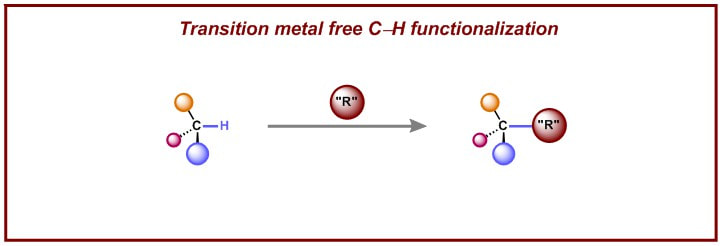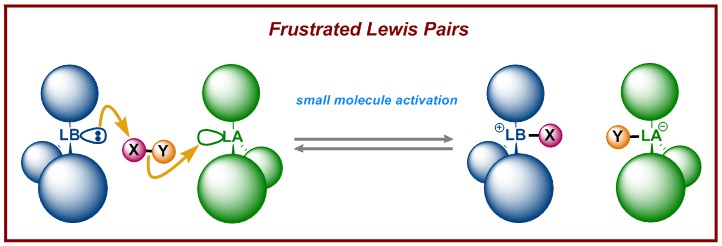our research.We explore the reactivity of main group elements to develop new concepts that can be applied in efficient and sustainable methods for chemical synthesis, and in the discovery of new applications for that reactivity, e.g. in functional materials. |
|
|
|
|
|
|
fundamental concepts.
We strive to attain new knowledge of chemical reactivity that allows us to develop reactions that were previously thought impossible. For example, we are exploring novel Lewis acids in the incredible concept of Frustrated Lewis Pairs. |
synthetic methodology.
Develop robust ways to construct complex molecules, which allow access to new structures and more efficient access to old ones. For example we are investigating novel transition metal-free C-H functionalization processes. |
applications.
Apply the new reactivity concepts and synthetic methodology to applications important to us. For example: synthesis of natural and unnatural products used in medicines or functional materials. |
Chemical synthesis is the cornerstone of science. Everything around you is there because of some shape or form of chemical synthesis. Whether it be biological in origin, that for example provides the oxygen we breath, or performed by humans in the discovery and production of life saving medicines that treat your loved ones.
We are currently exploring the fascinating and wide ranging reactivity of main group elements such as boron and sulfur, in chemical synthesis, and applying them in a variety of challenging applications.
We aim to establish fundamental reactivity concepts involving main group elements that allow us to develop new synthetic methodologies. These new methodologies and reactivity principles are applied in the synthesis of natural and unnatural products that are used in a variety of important, life changing applications. For example, in the synthesis of medicines, and capture, storage and conversion of small molecules.
We are currently exploring the fascinating and wide ranging reactivity of main group elements such as boron and sulfur, in chemical synthesis, and applying them in a variety of challenging applications.
We aim to establish fundamental reactivity concepts involving main group elements that allow us to develop new synthetic methodologies. These new methodologies and reactivity principles are applied in the synthesis of natural and unnatural products that are used in a variety of important, life changing applications. For example, in the synthesis of medicines, and capture, storage and conversion of small molecules.


